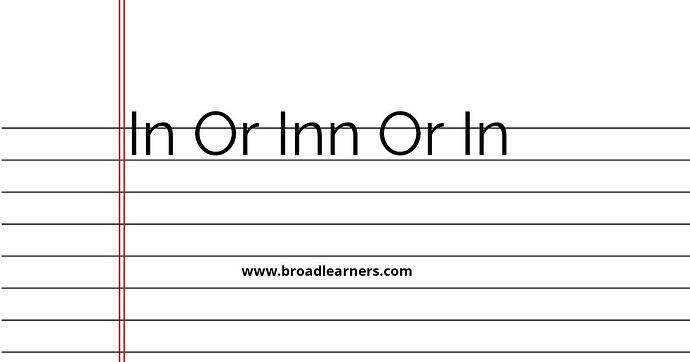'In', 'inn', and 'in' are commonly confused words in English grammar. Understanding the difference between 'in', 'inn', and 'in' is important to use them correctly in written and spoken English.
'In' is a preposition that is used to indicate location or position within a place or object. It is also used to indicate inclusion or involvement in a particular activity or situation.
'Inn' is a noun that refers to a small hotel, typically located in a rural area, where travelers can stay overnight.
'In' is a noun that refers to a unit of currency in several countries, including India, Sri Lanka, and Pakistan.
Let's take a closer look at the meanings and usage of 'in', 'inn', and 'in'.
| 'In' | 'Inn' | 'In' |
|---|---|---|
| The word 'in' is used as a preposition to indicate location or position. | The word 'inn' is a noun that refers to a small hotel. | The word 'in' is a noun that refers to a unit of currency. |
|
|
|
To remember the difference between 'in', 'inn', and 'in', it can be helpful to remember that 'in' is a preposition indicating location or involvement, 'inn' is a noun referring to a small hotel, and 'in' is a noun referring to a unit of currency.
Here are some examples of correct usage:
- I left my keys in the car. (indicating location)
- We are in the process of organizing the event. (indicating involvement)
- We stayed at a charming inn during our vacation. (referring to a small hotel)
- The inn was fully booked for the weekend. (referring to a specific type of hotel)
- The price of the product is 1000 in rupees. (referring to a unit of currency)
- I exchanged my dollars for Indian rupees. (referring to a different currency)
Remembering the correct usage of 'in', 'inn', and 'in' will improve your grammar and communication skills.
